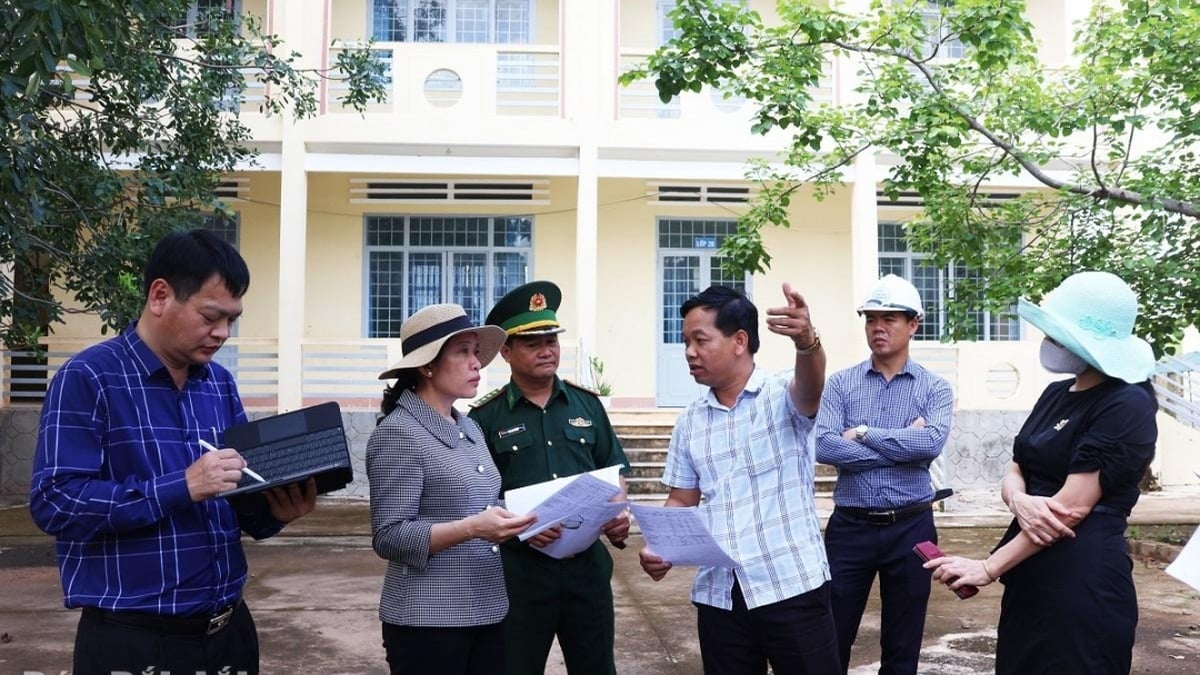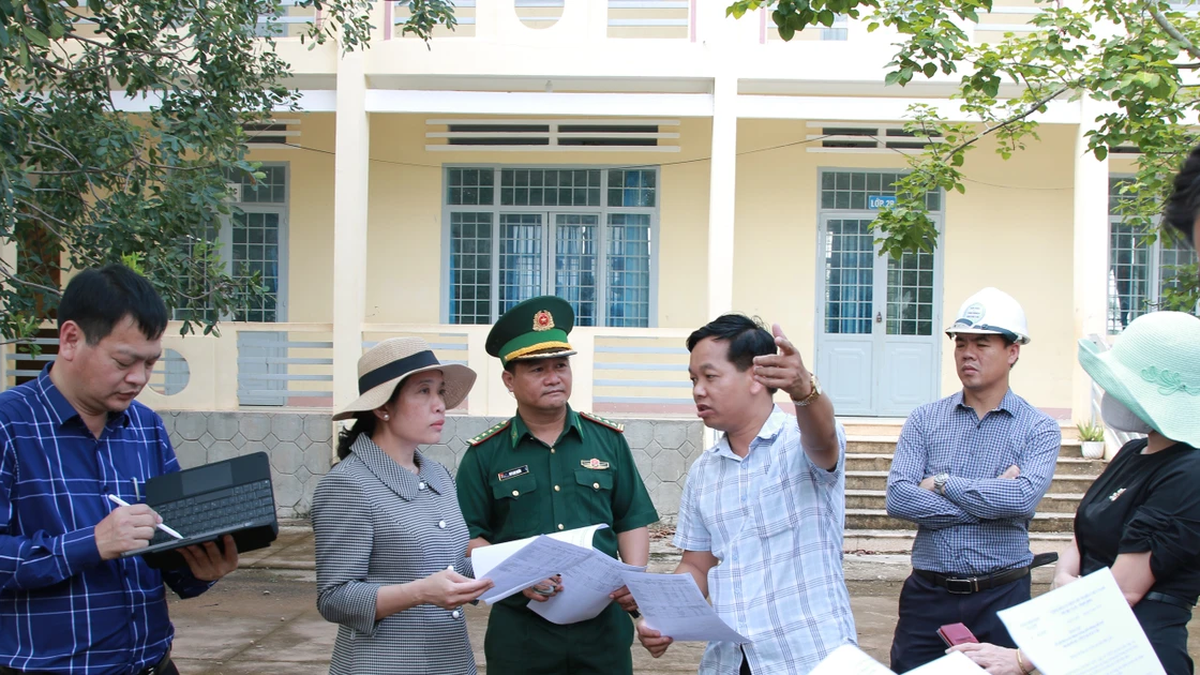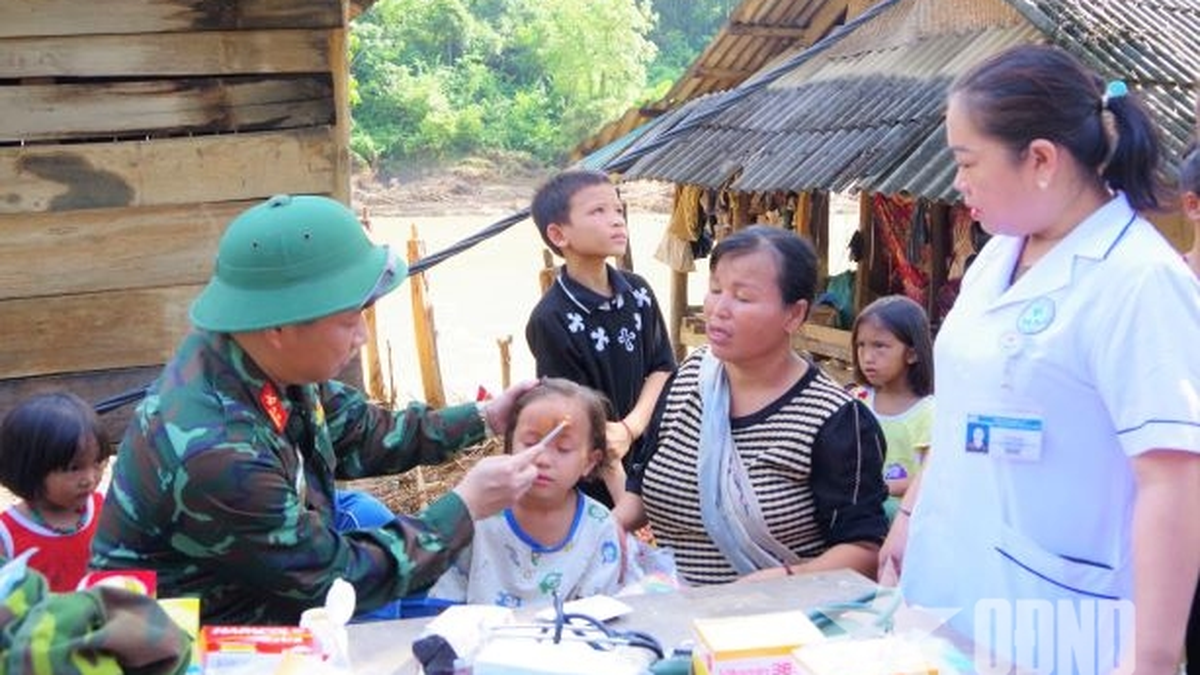
Many children have to be hospitalized with symptoms of fever and difficulty breathing due to respiratory syncytial virus (also known as RSV).
Premature birth, low resistance, there was a baby only 2 months old had to be hospitalized for treatment due to SRV infection causing upper respiratory tract infection, pneumonia. After a week of treatment, the baby's health improved, symptoms of cough, runny nose, wheezing decreased significantly. Ms. Le Thi Hong Nhung, the patient's mother shared: "At first, my baby had difficulty breathing, I patted my baby's back and it helped, now he has stopped vomiting and can eat again. Currently, his lungs are still inflamed, so we need to continue monitoring."
The Department of Infectious Diseases, Provincial Obstetrics and Pediatrics Hospital is treating more than 60 pediatric patients. Of these, nearly 30 pediatric patients have RSV causing upper respiratory tract infections and bronchopneumonia. According to doctors, RSV is a virus that leads to respiratory failure very quickly, causing complications of pneumonia, and weakening the immune system in children if not detected early and treated promptly. Doctor Hoang Tung, Head of the Department of Infectious Diseases, Provincial Obstetrics and Pediatrics Hospital shared: "This is a virus that is sensitive to children's respiratory tract, the disease will progress from the upper respiratory tract to the lower respiratory tract. The younger the child, the more susceptible to infection and the more likely it is to become more severe than older children."

There is currently no vaccine to prevent RSV. Children should be kept away from crowded places and provided with a clean living environment to help reduce the risk of infection.
Respiratory syncytial virus is transmitted through direct contact with nasal secretions, saliva or from the hands of a person carrying the virus through the eyes or nose. The disease can spread and infect quickly, especially when children return to school. In addition to strengthening propaganda and instructing parents on care skills and preventing re-infection for children, the hospital has also proactively implemented solutions regarding facilities and medicines to ensure good treatment. Doctor Tran Hoai Bac, Deputy Director of the Provincial Obstetrics and Pediatrics Hospital, said: "Regarding paraclinical, the hospital has been equipped with a PCR machine and deployed multiplex tests to diagnose the cause of respiratory infections, ready hospital beds, and infectious disease emergency ready to treat patients when the number of patients increases."
There is currently no vaccine to prevent the disease, nor specific treatment for respiratory syncytial virus, so the only treatment is symptomatic combined with supportive care and improving the child's health. To prevent infection, parents should avoid taking their children to crowded places and create a clean living environment to help children effectively reduce the risk of RSV infection.
Van Anh - Nong Quy
Source


































































































Comment (0)